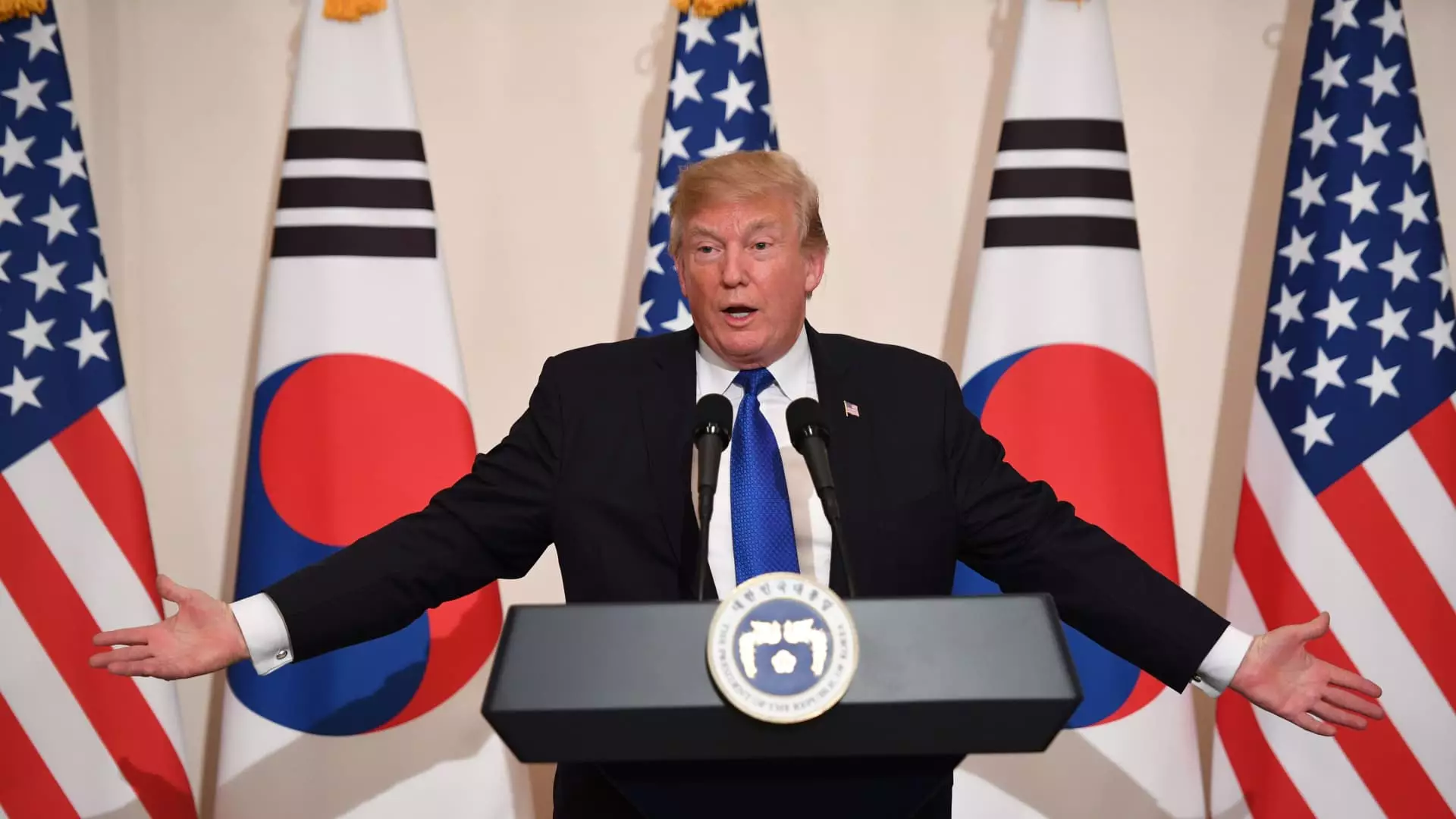The recent announcement of a purported “full and complete” trade deal between the United States and South Korea paints a rosy picture of mutual benefit. However, beneath the surface lies a complex web of geopolitical maneuvering and economic prioritization that challenges the narrative of genuine cooperation. While officials trumpet the deal as a strategic victory—highlighting lowered tariffs and investments—the reality is more nuanced. The sizable $350 billion investment fund, touted as primarily benefiting the American public, warrants skepticism. The claim that 90% of profits will go to Americans seems overly optimistic when scrutinized through a pragmatic lens, ignoring the inherent asymmetries and the strategic interests that may compromise genuine equity.
Many critics could argue that such expansive financial commitments are less about economic fairness and more about wielding influence. The US aims to bolster its industries—semiconductors, shipbuilding, energy—yet these sectors seem selected less for their stated global importance and more for their geopolitical significance. It’s not simply about fair trade; it’s about securing economic footholds and strategic advantages. The promise of a “mutually beneficial” relationship often masks a reality where the United States maintains a dominant position, shaping South Korea’s industrial future while securing access to vital markets.
The Empty Promise of Fair Competition
The deal’s assurance—particularly that U.S. goods will face no tariffs—appears promising at face value. However, the question remains: how genuine is this openness when the earlier tariff threats for South Korea hovered at 25%? The lowering of tariffs to 15%, though positive, is ambiguous in its long-term impact. It signals a partial retreat from protectionist measures, but the underlying power dynamics suggest a shift rather than a transformation. A superficial reduction does little to address broader concerns about market access, fair competition, and regulatory transparency.
Furthermore, South Korea’s effective tariff rate on U.S. goods in 2024, at approximately 0.79%, indicates a relatively open position already. Yet, the broader implications are less about creating a level playing field and more about reaffirming U.S. dominance in strategic industries. Such deals tend to reinforce existing inequalities: South Korea’s push into energy and tech is encouraged not purely out of economic interest but driven by geopolitical necessity. The concept of “mutual benefit” feels misleading in a landscape where economic leverage heavily tilts toward Washington.
Strategic Intentions Cloaked in Economic Promises
The invocation of a large investment and energy procurement deal is more about positioning than genuine economic cooperation. The commitment to purchasing energy products from the U.S. and investing heavily in specific sectors signals an intent to reshape the manufacturing and industrial landscape. Yet, these negotiations often serve broader political goals: solidifying alliances, countering China’s influence, and affirming U.S. economic leadership in the Asia-Pacific.
Additionally, the claim that the majority of profits from investments will benefit Americans seems more rhetorical than substantive. Profit distribution depends on numerous factors—tax policies, corporate strategies, global market conditions—that are inherently complex. The simplified narrative glosses over the challenges faced by Korean firms competing fiercely in the U.S. market, and the diplomatic balancing act Seoul must manage to maintain its own sovereignty and economic interests.
Seoul’s emphasis on diplomacy “centered on national interest” underscores that this deal is as much about strategic autonomy as it is about economic exchanges. South Korea recognizes that aligning too closely with U.S. economic policy could risk alienating other key partners, such as China. Reality reveals that the deal is less a testament to true partnership and more a carefully calibrated move within a broader geopolitical chessboard.
Critical Reflections on Power and Prosperity
Ultimately, this trade agreement is emblematic of a broader trend in international negotiations: the illusion of mutual benefit masking power asymmetries. While headlines celebrate tariff reductions and massive investments, real-world ramifications may include increased economic dependency, limited market access for South Korea, and a reinforcement of U.S. strategic dominance.
From a center-left perspective, one must emphasize the importance of balanced diplomacy rooted in fairness and respect for sovereignty. These deals should not be solely about economic gains but also about fostering genuine global cooperation that uplifts all partners equitably. As it stands, the U.S.-South Korea agreement appears to prioritize strategic interests under the guise of economic partnership—a pattern that challenges the ideals of fair and reciprocal international relations. In an increasingly interconnected world, true progress hinges on transparency, fairness, and the acknowledgment that economic power should serve to empower, not exploit, partner nations.


Leave a Reply